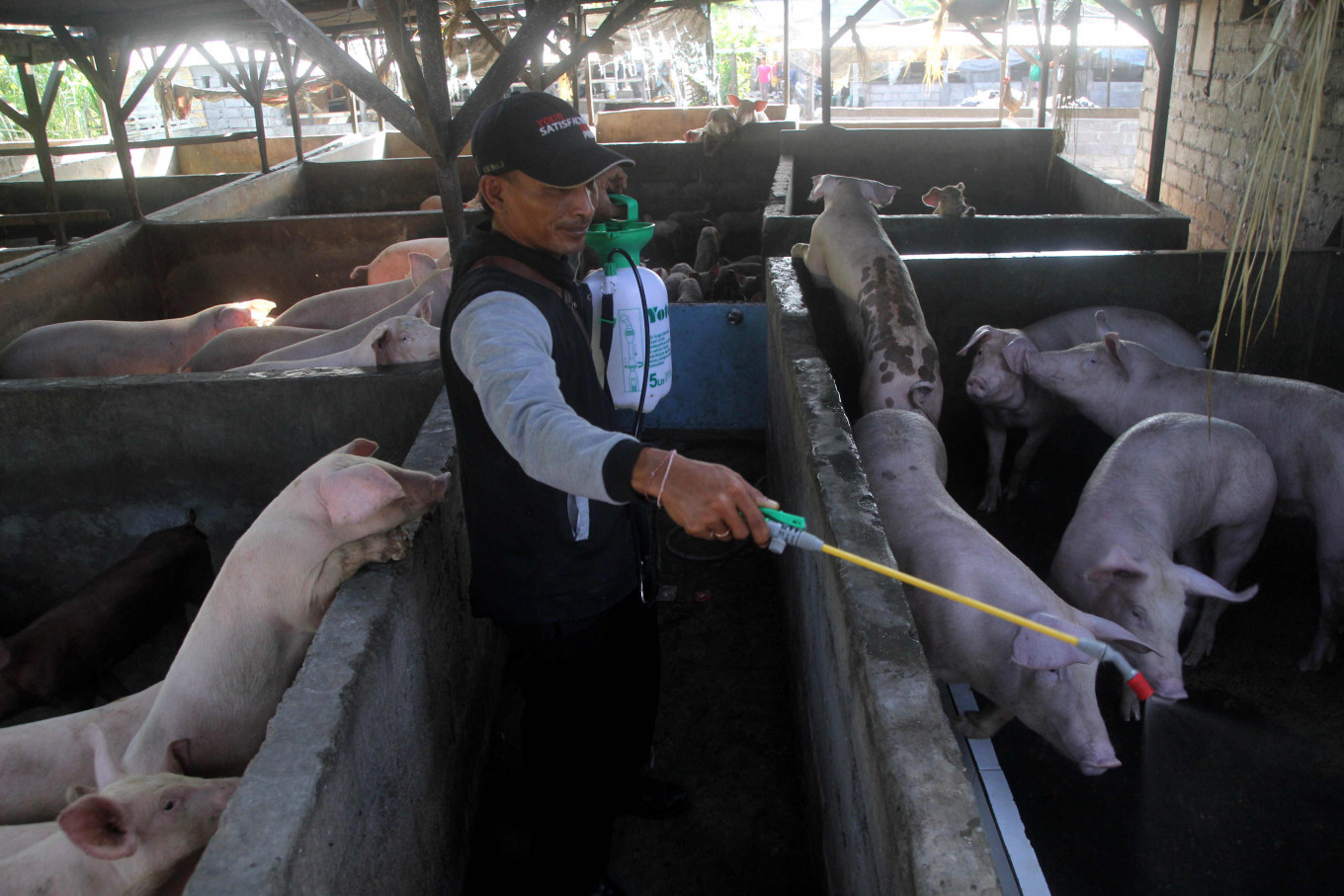Popular Reads
Top Results
Can't find what you're looking for?
View all search resultsPopular Reads
Top Results
Can't find what you're looking for?
View all search resultsBali confirms swine fever outbreak amid numerous pig deaths
Despite the outbreak, authorities claim they have successfully contained the spread of the disease, as there have been no new case of pig’s death in the last few days.
Change text size
Gift Premium Articles
to Anyone
B
alinese authorities have confirmed that the resort island has been plagued by African swine fever (ASF) following the deaths of nearly 1,000 pigs in the province over the past few months.
Despite the outbreak, authorities claim they have successfully contained the spread of the disease, as there have been no more pigs dying in the last few days.
“The pigs died because of the African swine fever,” Bali agriculture and food security agency head Ida Bagus Wisnuardhana told The Jakarta Post on Tuesday.
Read also: 'It's safe to eat pork': Bali launches campaign against swine fever outbreak with delicacies
He added that the agency had conducted laboratory tests on blood samples taken from the dead pigs. The tests were conducted at a veterinary laboratory in Medan, North Sumatra because it has more equipment than the ones in Bali.
North Sumatra also has more experience in identifying pig diseases following an ASF outbreak that killed more than 50,000 pigs across the province last year.
Read also: Hundreds of pigs in Bali killed by mystery disease
According to the World Organization for Animal Health (OIE), ASF is caused by “a large DNA virus of the Asfarviridae family”. While ASF is not a risk to human health, the disease can transmit to other pigs through direct and indirect contact, such as through “ingestion of contaminated material”.
According to the agency, at least 888 pigs have died from the disease within the last two months. Badung regency recorded the highest number of deaths with a total of 598, followed by Tabanan with 219, Denpasar with 45, Gianyar with 24 and Bangli and Karangasem with one each.
Ida said the outbreak in Bali was triggered by pig farmers being negligent while feeding their livestock.
“We suspect that those pigs were infected by ASF because many farmers gave them spoiled leftovers and raw food material from hotels without cooking it first,” he said.
The agency had issued a circular in December regarding the numerous pig deaths across Bali, warning farmers not to feed their livestock with leftovers and raw food material from hotels. Should they not have other choices, the agency suggested farmers boil the food first.
Read also: Save Pigs campaign kicks off in North Sumatra following African swine fever outbreak
Responding to the outbreak, Ida said that his office had been working hard to prevent its spread. The agency recorded that the pig population across the resort island can reach up to 800,000.
“We are working to raise farmers’ awareness [of the disease]. Hopefully, they can ramp up biosecurity by keeping pig cages clean. This way, they won’t suffer worse loss,” Ida said, adding that the agency had distributed free disinfectant to farmers.
The agency claimed success in preventing the disease from spreading further as it recorded zero pig deaths in the last six days.
The authorities said they believed that the outbreak would not affect Bali’s tourism industry, as ASF is known only to infect pigs.
“There are no cases of transmission to humans. It’s not a zoonosis,” Bali tourism agency head Putu Satawa said. “I am confident this will not have impact on the tourism sector.”
Badung Hotel and Restaurant Association chairman IGN Rai Suryawijaya echoed Putu’s confidence: “People know that the swine fever cannot infect humans.” (kuk)










